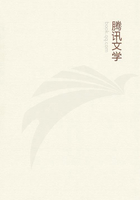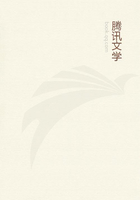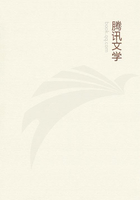From this stunning hubbub, a true Babel-like confusion of tongues, we have here selected two Voices; less as objects of praise or condemnation, than as signs how far the confusion has reached, what prospect there is of its abating.
Friedrich Schlegel's Lectures delivered at Dresden, and Mr. Hope's Essay published in London, are the latest utterances of European Speculation:
far asunder in external place, they stand at a still wider distance in inward purport; are, indeed, so opposite and yet so cognate that they may, in many senses, represent the two Extremes of our whole modern system of Thought;and be said to include between them all the Metaphysical Philosophies, so often alluded to here, which, of late times, from France, Germany, England, have agitated and almost overwhelmed us. Both in regard to matter and to form, the relation of these two Works is significant enough.
Speaking first of their cognate qualities, let us remark, not without emotion, one quite extraneous point of agreement; the fact that the Writers of both have departed from this world; they have now finished their search, and had all doubts resolved: while we listen to the voice, the tongue that uttered it has gone silent forever. But the fundamental, all-pervading similarity lies in this circumstance, well worthy of being noted, that both these Philosophies are of the Dogmatic or Constructive sort: each in its way is a kind of Genesis;an endeavour to bring the Phenomena of man's Universe once more under some theoretic Scheme: in both there is a decided principle of unity; they strive after a result which shall be positive; their aim is not to question, but to establish.
This, especially if we consider with what comprehensive concentrated force it is here exhibited, forms a new feature in such works.
Under all other aspects, there is the most irreconcilable opposition;a staring contrariety, such as might provoke contrasts, were there far fewer points of comparison. If Schlegel's Work is the apotheosis of Spiritualism; Hope's again is the apotheosis of Materialism: in the one, all Matter is evaporated into a Phenomenon, and terrestrial Life itself, with its whole doings and showings, held out as a Disturbance (Zerruttung) produced by the Zeitgeist (Spirit of Time); in the other, Matter is distilled and sublimated into some semblance of Divinity: the one regards Space and Time as mere forms of man's mind, and without external existence or reality; the other supposes Space and Time to be 'incessantly created,' and rayed-in upon us like a sort of gravitation.'
Such is their difference in respect of purport: no less striking is it in respect of manner, talent, success and all outward characteristics. Thus, if in Schlegel we have to admire the power of Words, in Hope we stand astonished, it might almost be said, at the want of an articulate Language. To Schlegel his Philosophic Speech is obedient, dexterous, exact, like a promptly ministering genius; his names are so clear, so precise and vivid, that they almost (sometimes altogether) become things for him: with Hope there is no Philosophical Speech; but a painful, confused stammering, and struggling after such; or the tongue, as in doatish forgetfulness, maunders, low, long-winded, and speaks not the word intended, but another; so that here the scarcely intelligible, in these endless convolutions, becomes the wholly unreadable;and often we could ask, as that mad pupil did of his tutor in Philosophy, "But whether is Virtue a fluid, then, or a gas?" If the fact, that Schlegel, in the city of Dresden, could find audience for such high discourse, may excite our envy;this other fact, that a person of strong powers, skilled in English Thought and master of its Dialect, could write the Origin an Prospects of Man, may painfully remind us of the reproach, that England has now no language for Meditation; that England, the most calculative, is the least meditative, of all civilised countries.
It is not our purpose to offer any criticism of Schlegel's Book; in such limits as were possible here, we should despair of communicating even the faintest image of its significance. To the mass of readers, indeed, both among the Germans themselves, and still more elsewhere, it nowise addresses itself, and may lie forever sealed. We point it out as a remarkable document of the Time and of the Man; can recommend it, moreover, to all earnest Thinkers, as a work deserving their best regard; a work full of deep meditation, wherein the infinite mystery of Life, if not represented, is decisively recognised.
Of Schlegel himself, and his character, and spiritual history, we can profess no thorough or final understanding; yet enough to make us view him with admiration and pity, nowise with harsh contemptuous censure; and must say, with clearest persuasion, that the outcry of his being 'a renegade,'
and so forth, is but like other such outcries, a judgment where there was neither jury, nor evidence, nor judge. The candid reader, in this Book itself, to say nothing of all the rest, will find traces of a high, far-seeing, earnest spirit, to whom 'Austrian Pensions,' and the Kaiser's crown, and Austria altogether, were but a light matter to the finding and vitally appropriating of Truth. Let us respect the sacred mystery of a Person; rush not irreverently into man's Holy of Holies! Were the lost little one, as we said already, found 'sucking its dead mother, on the field of carnage,' could it be other than a spectacle for tears? Asolemn mournful feeling comes over us when we see this last Work of Friedrich Schlegel, the unwearied seeker, end abruptly in the middle;and, as if he had not yet found, as if emblematically of much, end with an 'Aber-,' with a 'But-'! This was the last word that came from the Pen of Friedrich Schlegel:
about eleven at night he wrote it down, and there paused sick; at one in the morning, Time for him had merged itself in Eternity; he was, as we say, no more.













